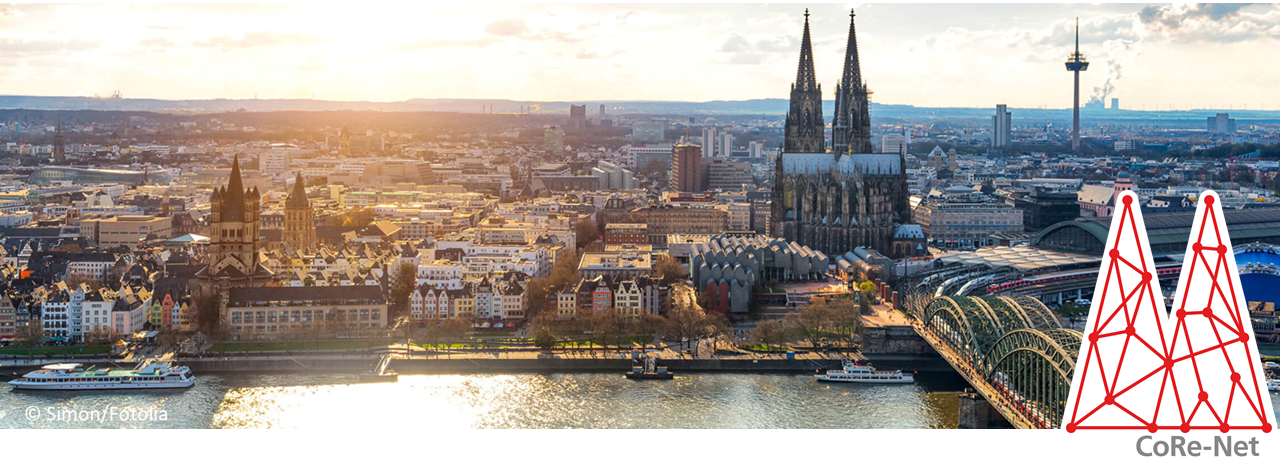On 19th August 2020 , from 05:00 pm to 06:30 pm, our Methods Forum on the topic of “CoRe-Net database for tomorrow’s research” were oranized in cooperation with the Center for Health Services Research (ZVFK).
Due to the pandemic, the event was offered in hybrid form for the first time. It turned out that mainly virtual participation was accepted. Out of a total of 26 participants, 23 people took part in our forum via the Zoom platform.

A total of five speakers led through the varied programme of the methods Forum:
Dr. Nadine Scholten, applicant and CoRe-Net coordinator, from the Institute of Medical Sociology, Health Services Research and Rehabilitation Science (IMVR) at the University of Cologne, opened the event with the topic “CoRe-Net as a basis: From the idea to the innovation infrastructure”. .

The methods forum offered three examples for the use of CoRe-Net data, including coronary heart disease and mental comorbidities, evaluation, health economics and care planning.
Katja Blaschke from the PMV research group at the University of Cologne, started the second block with the topic ‘MenDis-CHD – From the idea to the curriculum’..

Dusan Simic from the Institute for Health Economics and Clinical Epidemiology (IGKE) at the University of Cologne focused on the health economic evaluation of better care for MRSA patients with his contribution” ‘Evaluation: Intervention and Health Economics’. The system perspective and the individual hospitals were considered.

Ingo Meyer, applicant and head of the PMV research group at the University of Cologne, motivated the participants to use the Use Cases with its topic ‘From Research to Care Planning – Learning Health System’ to use the CoRe-Net data for research questions of other projects.

In the last block of the afternoon, Peter Ihle, also from the PMV research group at the University of Cologne, described with his topic ‘From your idea to the use case’ how to access data: secure, (reasonably) uncomplicated and with support from CoRe-Net.
Despite the challenge of offering our Methods Forum virtually for the first time in addition to personal participation on site, we look back on a successful event. We received feedback, that the online lectures were easy to follow. Quiet background discussions of those present sometimes caused minor difficulties of understanding. This could be solved by using the separate chat function, through which the participants preferably asked their questions to the team of speakers. An exchange was thus easily implemented despite the physical distance.
With hope of being able to promote the network character of the next event through personal participation and follow-up discussions, we are pleased about the lively participation despite pandemic-related restrictions and would like to thank everyone who participated in the Methods Forum!

